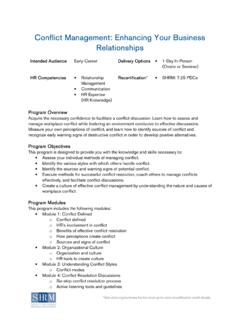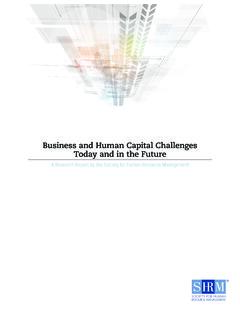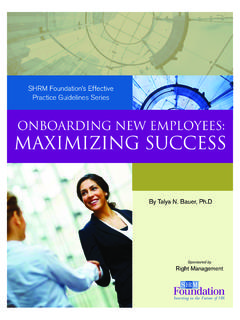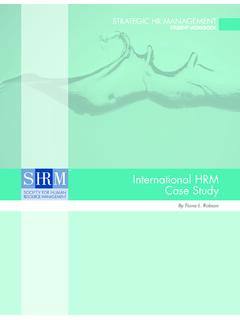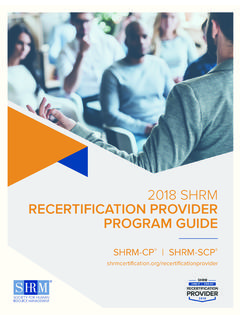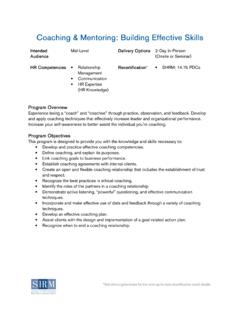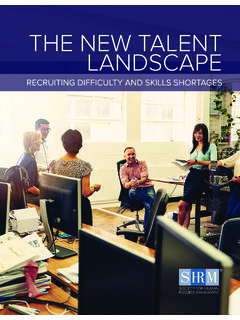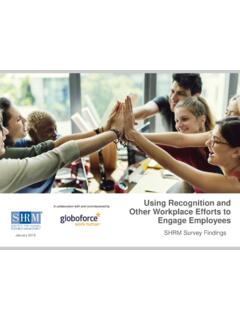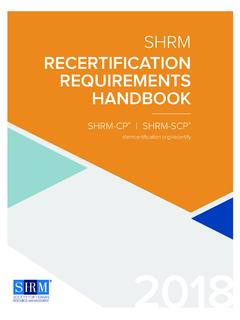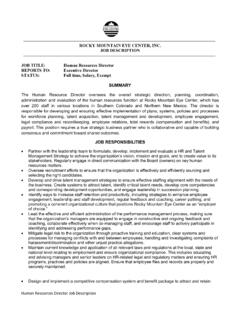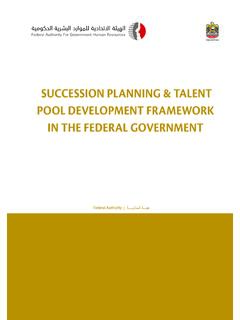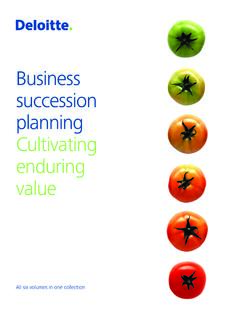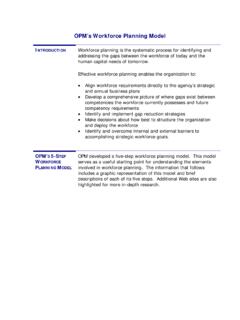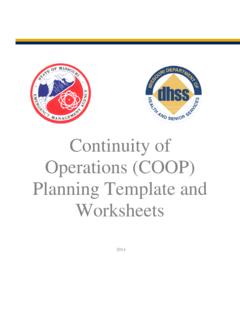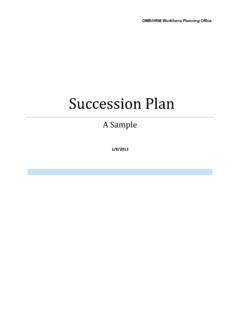Transcription of Hewitt’s Human Capital Consulting
1 Human Capital Institute | hewitt Associates | October 2008. hewitt 's Human Capital Consulting The State of Talent Management: Today's Challenges, Tomorrow's Opportunities In partnership with The State of Talent Management: Today's Challenges, Tomorrow's Opportunities hewitt Associates For more than 65 years, hewitt Associates (NYSE: HEW) has provided clients with best-in-class Human resources (HR) Consulting and outsourcing services. hewitt consults with more than 3,000 large and mid-size companies around the globe to develop and implement HR business strategies covering retirement, financial and health management; compensation and total rewards; and performance, talent, and change management.
2 As a market leader in benefits administration, hewitt delivers health care and retirement programs to millions of participants and retirees on behalf of more than 300 organizations worldwide. In addition, more than 30 clients rely on hewitt to provide a broader range of HR business process outsourcing services to nearly a million client employees. Located in 33 countries, hewitt employs approximately 23,000 associates. For more information, please visit For specific questions regarding this report, please send email to: Human Capital Institute The Human Capital Institute (HCI) is a catalyst for innovative new thinking in talent acquisition, development, deployment and new economy leadership.
3 Through research and collaboration, our global network of more than 130,000 members develops and promotes creativity, best and next practices, and actionable solutions in strategic talent management. Executives, practitioners, and thought leaders representing organizations of all sizes, across public, charitable and government sectors, utilize HCI. communities, education, events and research to foster talent advantages to ensure organizational change for competitive results. In tandem with these initiatives, HCI's Human Capital Strategist professional certifications and designations set the bar for expertise in talent strategy, acquisition, development and measurement.
4 Copyright 2008 Human Capital Institute. All rights reserved. The State of Talent Management: Today's Challenges, Tomorrow's Opportunities Table of Contents Research Highlights: Talent Challenges of 1. The State of Talent 5. Talent 6. Workforce planning and Talent 10. Capability Development and Performance .. 15. Leadership and High Potential 20. Talent 25. Recommendations for the 29. 33. About the 34. The State of Talent Management: Today's Challenges, Tomorrow's Opportunities Research Highlights: Talent Challenges of Today Companies today face formidable talent challenges. The ability to sustain a steady supply of critical talent is a challenge facing all organizations worldwide.
5 Among the issues impacting the next generation workforce are impending skill shortages, an increasingly cross-generational and diverse workforce, the need for knowledge transfer from retiring baby boomers, and significant leadership gaps. Intense cost pressure from both traditional and emerging competitors, new markets, and more demanding customers are additional elements that give a new sense of urgency to the concept of talent management. At a time when organizations need to optimize their workforces, most agree that talent management is of strategic importance. To evaluate the extent to which companies act on that belief, hewitt Associates and the Human Capital Institute undertook a comprehensive study seeking to assess the state of talent management practices in companies today.
6 About the Study The research provides results from both a quantitative survey and qualitative interviews. The survey was designed to gauge the maturity level of a comprehensive set of talent practices;. that is, the extent to which an organization's practices are sophisticated, progressive, practical and well executed. This enabled us to identify strength and challenges in talent management and key areas of focus for the future. Nearly 700 senior-level talent leaders (both HR and non-HR) participated in the study. Through supplemental in-depth interviews, we captured innovative practices at select companies with more developed talent management practices.
7 This combination of quantitative survey data and qualitative interview results helped shape a better understanding of the complex issues surrounding talent management today. The growing recognition that the quality talent is a sustainable competitive advantage, coupled with a realistic Top 5 Workforce Challenges view of the complexity and scope of changes in the global 1. Attracting and retaining workforce, has led to a renewed focus and urgency around skilled professional workers talent management. Based on nearly 700 responses, 2. Developing manager Human resources (HR) and business leaders overwhelmingly capability identified attracting and retaining skilled and professional 3.
8 Retaining high performers workers as the workforce challenge most impacting their 4. Developing succession pool organizational strategy. Developing manager capability, depth retaining high performers, developing succession pool 5. Addressing shortages of depth, and addressing shortages of management or management or leadership leadership talent closely followed. talent 1. Copyright 2008 Human Capital Institute. All rights reserved. The State of Talent Management: Today's Challenges, Tomorrow's Opportunities In today's uncertain economic environment, it's important that organizations address talent issues promptly, but it's equally important that they get them right the first time.
9 There's little room for trial and error, as all initiatives are expected to produce solid financial results. Unfortunately, most companies are still struggling to institutionalize effective talent management practices and programs. Positive Results Based on the results of this research, our collective experience, and prior research findings, we believe that organizations are indeed improving their talent management capabilities. The skills, performance, engagement, adaptability, and continuity of an organization's workforce are indisputably a core competitive advantage and prerequisite for sustained financial success.
10 Increasingly, organization leaders, starting with top officers, understand the business payback of focusing on getting these things right. As a result, the advances being made in talent management can be attributed to the following: enior Leaders Recognize Superior Talent as a Business Advantage: Senior leaders S. do get it. In nine out of ten organizations, they believe superior talent provides a vital competitive advantage. They increasingly recognize the critical linkage between effective talent management and business success. ocus on Talent Management: The pressure to attract and retain key talent has led F.
